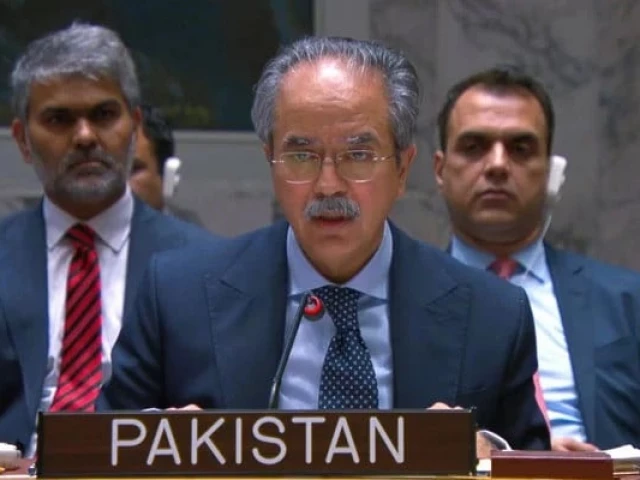The United Nations:
Reaffirm its commitment to achieve the objective of sustainable development (ODD 7), which aims to guarantee access to affordable and clean energies for all, Pakistan has stressed the need for a tax space for developing countries, in particular those confronted with a debt service crisis, to meet the exceptional needs of their population.
“Regarding Pakistan, we illustrate both the urgency and the opportunity for the global energy transition,” said Ambassador Asim Iftikhar Ahmad, permanent representative of Pakistan to the UN, told a panel of the United Nations High Level Political Forum (HLPF) which has examined progress on SDG 7.
Pakistan is co -president of the group of sustainable energy friends with a strong emphasis on the realization of SDG7 which aligns their national development priorities and the larger global agenda.
The HLPF, held under the auspices of the Economic and Social Council, provides a platform to the countries to report their progress to the SDGs, including the SDG7.
Noting that around 40 million people in Pakistan in 2024 have remained without access to electricity, the Pakistani envoy said: “We are firmly in our own energy ambitions; the country has set an objective to reach 60% renewable electricity by 2030.
“Our energy roadmap plans to add 13 GW (Gigawatts) of the new hydroelectricity, while nuclear energy continues to provide a reliable and low carbon content.” The Ambassador Asim Iftikhar added: “a” silent solar revolution “is also underway in my country, driven by low -imported prices, inexpensive technology and clear implementation policies.




